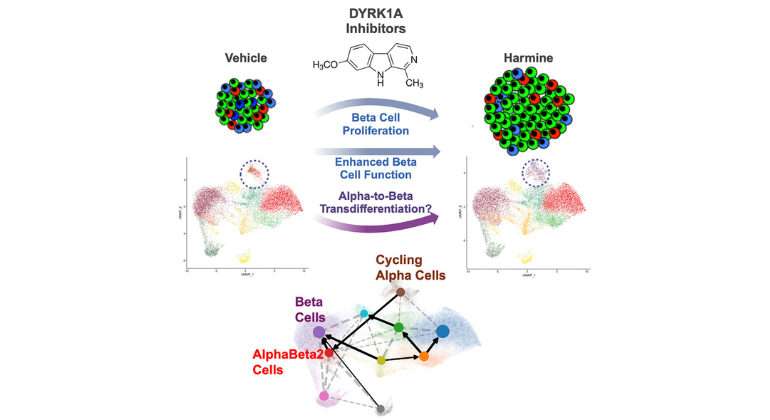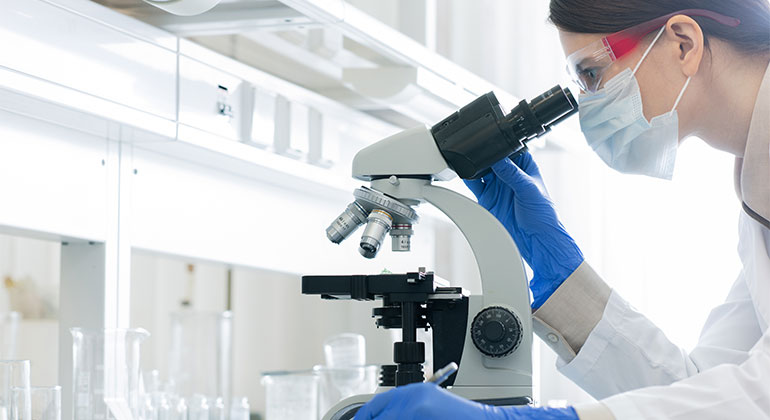Binge Drinking Increases Risk of Type 2 Diabetes by Causing Insulin Resistance
Binge drinking causes insulin resistance, which increases the risk of Type 2 diabetes, according to the results of an animal study led by researchers at the Icahn School of Medicine at Mount Sinai. The results are published in the January 30 issue of the journal Science Translational Medicine.
Binge drinking causes insulin resistance, which increases the risk of Type 2 diabetes, according to the results of an animal study led by researchers at the Icahn School of Medicine at Mount Sinai. The results are published in the January 30 issue of the journal Science Translational Medicine.
Alcohol disrupts insulin-receptor signaling by causing inflammation in the hypothalamus area of the brain, according to the researchers at Mount Sinai's Diabetes Obesity and Metabolism Institute.
"Insulin resistance has emerged as a key metabolic defect leading to Type 2 diabetes and coronary artery disease (CAD)," said Christoph Buettner, MD, PhD, senior author of the study and Associate Professor of Medicine (Endocrinology, Diabetes and Bone Disease). "Someone who regularly binge drinks even once a week, over many years, may remain in an insulin resistant state for an extended period of time, potentially years," said Dr. Buettner.
In this study, researchers treated rats with alcohol for three consecutive days to simulate human binge drinking. A control group received the same amount of calories. Once alcohol was no longer detectable in blood, glucose metabolism was studied through either glucose-tolerance tests or through controlled-insulin infusions. The rats treated with alcohol were found to have higher concentrations of plasma insulin than the control group, suggesting that insulin resistance may have been the cause of the impaired glucose tolerance.
High plasma insulin levels are a major component of the metabolic syndrome, a group of risk factors that occur together and increase the risk for Type 2 diabetes, coronary artery disease, and stroke.
"Previously it was unclear whether binge drinking was associated with an increased risk for diabetes, since a person who binge drinks may also tend to binge eat, or at least eat too much. Our data show for the first time that binge drinking induces insulin resistance directly and can occur independent of differences in caloric intake," said Claudia Lindtner, MD, first author of the study and an Associate Researcher of Medicine, Endocrinology, Diabetes and Bone Disease at the Icahn School of Medicine.
About The Mount Sinai Medical Center
The Mount Sinai Medical Center encompasses both The Mount Sinai Hospital and Icahn School of Medicine at Mount Sinai. Established in 1968, the Icahn School of Medicine is one of the leading medical schools in the United States, and is noted for innovation in education, biomedical research, clinical care delivery, and local and global community service. It has more than 3,400 faculty in 32 departments and 14 research institutes, and ranks among the top 20 medical schools both in National Institutes of Health (NIH) funding and by U.S. News & World Report.
The Mount Sinai Hospital, founded in 1852, is a 1,171-bed tertiary- and quaternary-care teaching facility and one of the nation's oldest, largest and most-respected voluntary hospitals. In 2012, U.S. News & World Report ranked The Mount Sinai Hospital 14th on its elite Honor Roll of the nation's top hospitals based on reputation, safety, and other patient-care factors. Mount Sinai is one of 12 integrated academic medical centers whose medical school ranks among the top 20 in NIH funding and by U.S. News & World Report and whose hospital is on the U.S. News & World Report Honor Roll. Nearly 60,000 people were treated at Mount Sinai as inpatients last year, and approximately 560,000 outpatient visits took place.
For more information, visit http://www.mountsinai.org/.
Find Mount Sinai on:
Facebook: http://www.facebook.com/mountsinainyc
Twitter @mountsinainyc
YouTube: http://www.youtube.com/mountsinainy
About the Mount Sinai Health System
Mount Sinai Health System is one of the largest academic medical systems in the New York metro area, with 48,000 employees working across seven hospitals, more than 400 outpatient practices, more than 600 research and clinical labs, a school of nursing, and a leading school of medicine and graduate education. Mount Sinai advances health for all people, everywhere, by taking on the most complex health care challenges of our time—discovering and applying new scientific learning and knowledge; developing safer, more effective treatments; educating the next generation of medical leaders and innovators; and supporting local communities by delivering high-quality care to all who need it.
Through the integration of its hospitals, labs, and schools, Mount Sinai offers comprehensive health care solutions from birth through geriatrics, leveraging innovative approaches such as artificial intelligence and informatics while keeping patients’ medical and emotional needs at the center of all treatment. The Health System includes approximately 9,000 primary and specialty care physicians and 11 free-standing joint-venture centers throughout the five boroughs of New York City, Westchester, Long Island, and Florida. Hospitals within the System are consistently ranked by Newsweek’s® “The World’s Best Smart Hospitals, Best in State Hospitals, World Best Hospitals and Best Specialty Hospitals” and by U.S. News & World Report's® “Best Hospitals” and “Best Children’s Hospitals.” The Mount Sinai Hospital is on the U.S. News & World Report® “Best Hospitals” Honor Roll for 2024-2025.
For more information, visit https://www.mountsinai.org or find Mount Sinai on Facebook, Twitter and YouTube.

Mount Sinai Researchers Move Closer to a Cure for Diabetes
Dec 10, 2024 View All Press Releases
Researchers Identify Potential Target for Treatment Among Patients With Type 2 Diabetes
Aug 04, 2022 View All Press ReleasesMount Sinai Discovers New Drug Combo to Induce High Rates of Human Beta Cell Regeneration
Feb 12, 2020 View All Press Releases

